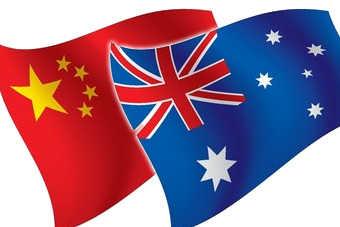
BEIJING, June 7(Xinhua) -- Australia is willing to work with China in the fight against illicit drug trafficking and the hunt for graft suspects and criminal assets, Justice Minister Michael Keenan told Xinhua in an exclusive interview on Wednesday.
"Australia has very strong law enforcement relations with China," said Keenan.
He said the country will cooperate with China on a range of issues related to law enforcement, and the avenue for that cooperation "is very well established."
Keenan arrived in Beijing on Monday night for a three-day visit to China. On Tuesday, he met with Chinese State Councilor and Minister of Public Security Guo Shengkun and Minister of Justice Zhang Jun.
He also co-chaired the inaugural ministerial dialogue on counter-terrorism and the fight against transnational crime with Vice Minister of Public Security Huang Ming.
During the visit, several agreements between the two counties were reached, including the extension of the Taskforce Blaze partnership to fight illicit drugs.
The taskforce, established in November 2015, was extended until January 2018, according to an agreement reached by the Chinese National Narcotics Control Commission and the Australian Federal Police on Tuesday.
Taskforce Blaze has successfully seized 10.5 tonnes of drugs and precursors worth more than 5 billion Australian dollars (3.78 billion U.S. dollars) in the last 18 months, according to a press release on the website of the Australian Embassy in Beijing.
Keenan said the taskforce is the first joint agency taskforce of its kind, and Australia "is very proud to be the only Western country to have such crime fighting cooperation with China."
On China's hunt for suspected corrupt officials, Keenan said the Australian government remains committed to ratifying an extradition treaty, adding that the government is continuing to have a conversation with the opposition party on this issue.
China and Australia signed an extradition treaty in 2007. However, the treaty failed to be ratified by the Australian Federal Parliament, and the latest attempt was blocked by the opposition Labor Party in the Senate in March.
Without the extradition treaty, Australia has become a major destination for Chinese fugitives. In 2015, the Chinese government published a list of 100 of the most wanted corruption suspects targeted with an Interpol red notice, many of whom are living in the United States, Canada and Australia.
Keenan said the two countries have successfully worked together to repatriate criminal assets.
"We work with the Chinese government to repatriate criminal assets and we will continue to do that. I had conversations with my friends in China on this visit specifically about that," he said.
The past few years have witnessed deterioration in the global security environment. Keenan, who is also the minister assisting the prime minster for counter-terrorism, said it is in both Australia's and China's interests to work on counter-terrorism.
In 2016, the Chinese Anti-Money Laundering Monitoring and Analysis Center and Australian Transaction Reports and Analysis Center signed a Memorandum of Understanding on sharing information on money laundering, terrorism financing and other crimes.
He said Australia will send an invitation to China to take part in a dialogue about counter-terrorism financing, which will be co-hosted with Malaysia and Indonesia in Kuala Lumpur in November.
"We've got to make sure that Australia doesn't become a safe haven for criminal assets and we are very committed to doing that," Keenan said, adding that his country will continue the cooperation with China in this area.




 A single purchase
A single purchase









